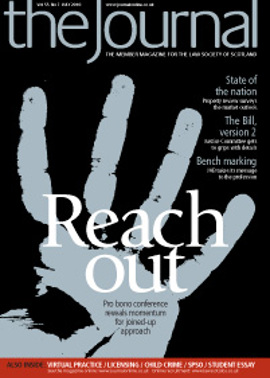From the Brussels office
ECJ: no reduced VAT for legal aid
Since 1991, France has been applying a reduced rate of 5.5% VAT to services rendered by lawyers in the context of partial or full legal aid. The Commission alleged that this breached Directive 2006/112 on the common system of value added tax. In its defence, France argued first that this reduced rate of VAT was required to ensure access to justice, and secondly, that the services concerned the “supply of… services by organisations recognised as being devoted to social wellbeing by member states and engaged in welfare or social security work”. In case C-492/08 the court held otherwise, pronouncing that the reduced rate put France in breach of its obligation under the directive.
Financial institutions scrutinised again
The European Commission seems determined to improve the behaviour and pay schemes of those working within financial institutions, particularly those who have a role in risk management, governance and taking decisions with potentially broader systemic effects.
A Green Paper on 2 June launched a public consultation (closing 1 September) on a range of issues from pay and incentive structures to the composition and functioning of boards; the role of auditors and supervisors; and the exchange of information that is important to risk management.
Landmark new procedural rights
In a historic move, on 16 June the first step of the Roadmap for strengthening procedural rights in criminal proceedings was completed. This was the first criminal justice measure to be adopted under the co-decision procedure, by which the European Parliament holds equal decision making power with the Council. The new directive will guarantee the rights to interpretation and translation of any EU citizen facing criminal proceedings in another member state. It will apply from when the accused person is made aware that he is suspected or accused of committing an offence until the proceedings are concluded (including the sentencing and appeal stages). The next stage in the Roadmap will be a proposal on the rights of accused persons to information about their rights (the “letter of rights”), due to be released this summer.
MEPs examine reform of Brussels I
The European Parliament is soon to give its view on what is needed to reform the Regulation 44/2001 (“Brussels I”) which clarifies the rules on jurisdiction, recognition and enforcement of judgments in civil and commercial matters. This is in response to a consultation published by the Commission last year, which highlighted the need to remove the remaining obstacles to the free circulation of judgments and protect European citizens and companies when they litigate against parties domiciled in third-country states. It supported the abolition of all intermediate measures in recognising judgments, provided sufficient safeguards were retained for the protection of judgment debtors. It also proposed allowing the courts having jurisdiction on the substance of a case to stay proceedings where they considered that a court of another member state or third country would be better placed to hear the case. A legislative proposal from the Commission is envisaged by the end of 2010.
In this issue
- Drop everything
- Free to give
- For the common good
- "Not for the likes of me"?
- RoS fees up for review
- Taking shape
- Criminalising children
- Split decision
- A picture's worth a thousand words
- "Duty to trade" revisited
- Law reform update
- From the Brussels office
- Join the cloud
- Combating claims in interesting times
- Ask Ash
- Party confidential
- What fresh hell is this?
- Links with the past
- Stranger than fiction
- Acts of kindness
- Scottish Solicitors' Discipline Tribunal
- Website review
- Book reviews
- Service driver
- Forecast: cloudy






